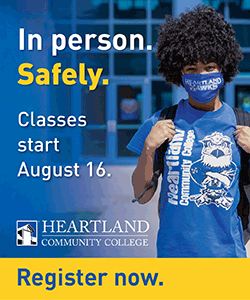|
 The U.S. Transportation Security Administration (TSA) requirements
that took effect on Feb. 1 were to set to expire on May 11. They
cover workers and travelers at airports, on board commercial
aircraft, on over-the-road buses, and on commuter bus and rail
systems through Sept. 13. The U.S. Transportation Security Administration (TSA) requirements
that took effect on Feb. 1 were to set to expire on May 11. They
cover workers and travelers at airports, on board commercial
aircraft, on over-the-road buses, and on commuter bus and rail
systems through Sept. 13.
The Centers for Disease Control and Prevention (CDC) issued the
federal mask mandate in nearly all transportation modes in late
January, including on ride-share vehicles. The order does not apply
to private cars or commercial trucks being driven by a sole
operator.
The decision was praised by airlines and airline unions.

Airlines for America, a trade group representing major airlines,
hailed "the administration's decision to extend the mandate
requiring face coverings onboard commercial aircraft and in
airports."
The group said "this layer of protection plays a critical role in
mitigating the risk of transmission ... (and) has significantly
strengthened our flight crews' ability to enforce these requirements
onboard."
The CDC said Wednesday it relaxed its guidelines to say fully
vaccinated people could safely engage in outdoor activities such as
walking and hiking without wearing masks. It said they should
continue to use face-coverings in public spaces where they are
required.
The TSA federal mandate requires masks in transit even in states
where officials have relaxed requirements in other public places
such as restaurants.
Wearing face masks is considered by experts one of the most
effective ways of controlling virus transmission. With most COVID-19
transmission occurring indoors, and vaccinations on the rise, the
use of masks outdoors has been debated for weeks in the United
States as many Americans look to enjoy the benefits of being fully
vaccinated.
[to top of second column] |
 Biden imposed the transit mask
mandate after then President Donald Trump
rejected CDC recommendations to do so.
The TSA told Reuters that since the transit mask
requirements took effect on Feb. 1 its agents
have "largely experienced voluntary compliance."
It said "transportation system operators have
reported almost 2,000 passengers for refusing to
wear a face mask. TSA will assess a civil
penalty if necessary."
In March, the head of the Federal Aviation
Administration indefinitely extended a "zero
tolerance policy" on unruly air passengers first
imposed in January, after hundreds of reported
incidents.
FAA Administrator Steve Dickson extended the
policy set to expire March 30, "as we continue
to do everything we can to confront the
pandemic." The FAA said the extension will last
at least as long as the federal transportation
face mask order remains in effect.
(Reporting by David Shepardson; Editing by
Leslie Adler, Howard Goller and Daniel Wallis)
[© 2021 Thomson Reuters. All rights
reserved.] Copyright 2021 Reuters. All rights reserved. This material may not be published,
broadcast, rewritten or redistributed.
Thompson Reuters is solely responsible for this content
 |